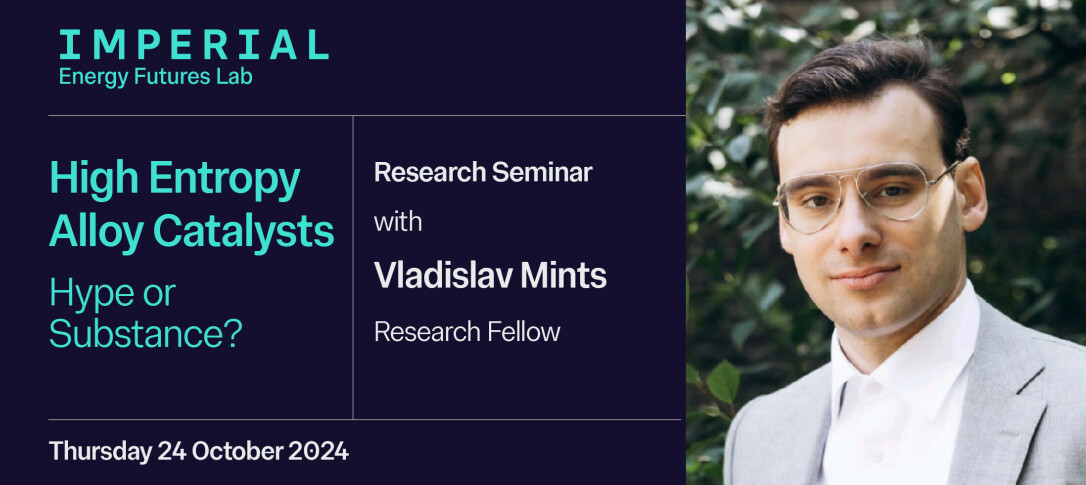
High Entropy Alloy Catalysts: Hype or Substance?
In the last years, the number of publications mentioning High Entropy Alloy Catalysts has grown exponentially. Composed of 5 and more elements, High Entropy Alloys provide a vast material library which has been speculated to contain novel unseen catalysts that may substitute the current industrial standards. However, due to the infinite size of the material library, systematic studies of all possible compositions are impossible. As such, mathematical optimization strategies and statistical methods became indispensable tools for efficient High Entropy Alloy catalysts studies. In this talk I will share my experience in using these tools to drive High Entropy Alloy research. The talk will cover the search for novel High Entropy Alloy compositions using Bayesian Optimization. It will further discuss how the search can be accelerated by studying more complex composition spaces. Lastly, based on the results from these screening studies it will provide a perspective on High Entropy Alloy catalyst research.
Speaker
Vladislav Mints obtained his master’s degree (cum laude) in 2020 at Leiden University, the Netherlands. There he studied the CO2 reduction reaction with the rotating ring disk electrode under supervision of Prof. Marc Koper.
Between 2020 and 2024 he did his PhD study (summa cum laude) at the University of Bern, Switzerland, in the group of Prof. Matthias Arenz. There, in collaboration with Prof. Jan Rossmeisl at the University of Copenhagen, Denmark, he studied High Entropy Alloys by integrating machine learning methods into conventional electrocatalytic studies.
In 2024, he received the SNF postdoc mobility fellowship to study the Li-mediated nitrogen reduction system at Imperial College London, United Kingdom in collaboration with Prof. Ifan Stephens and Prof. Magda Titirici.
About Energy Futures Lab
Energy Futures Lab is one of seven Global Institutes at Imperial College London. The institute was established to address global energy challenges by identifying and leading new opportunities to serve industry, government and society at large through high quality research, evidence and advocacy for positive change. The institute aims to promote energy innovation and advance systemic solutions for a sustainable energy future by bringing together the science, engineering and policy expertise at Imperial and fostering collaboration with a wide variety of external partners.